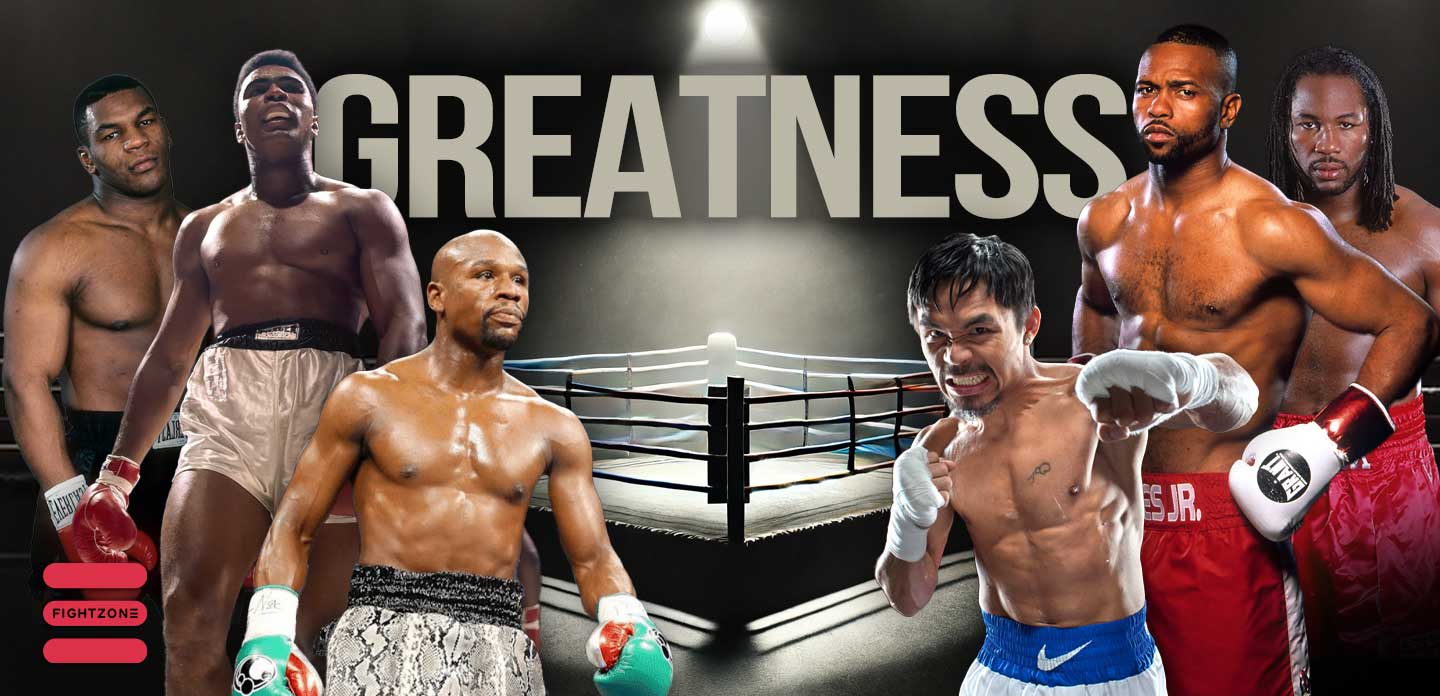Boxing, a sport steeped in history, has always been a battleground for warriors seeking glory. However, a harmful trend has emerged in recent decades: an overwhelming focus on fighters’ win-loss records. This boxing records obsession, rather than actual achievements and resilience, is unfair to boxers and detrimental to the sport. As boxing seeks to grow its fan base, it’s time to rethink how we measure greatness. Celebrating fighters’ achievements and resilience can revive the sport and attract a new generation of fans.
The Obsession with Boxing Records
The pressure to maintain an undefeated record in boxing has become an almost impossible burden. Promoters, fans, and even fighters often view a single loss as a career-ending catastrophe. However, it’s important to remember that the true essence of the sport lies not in never falling but in rising after every fall. This obsession with boxing records often overlooks the resilience and determination that should be celebrated and admired.
Consider the case of Anthony Joshua. Joshua was celebrated for his dominant record before his fights with Andy Ruiz Jr. and Oleksandr Usyk. However, after losing to Ruiz and Usyk, many began to doubt his abilities despite his impressive record of 24 wins with 22 knockouts before those defeats. Joshua’s achievements in the ring, his power, and his willingness to face top opponents should be the focus, not the losses on his record. This shift in perspective could help combat the detrimental effects of obsession with boxing records.
Achievements Over Perfection
Boxing should celebrate the milestones that define a fighter’s career. Achievements like winning world titles, competing in different weight classes, and showing resilience in adversity should be the actual measures of a boxer’s greatness, not the obsession with boxing records.
Take Manny Pacquiao, for instance. With 62 wins, eight losses, and two draws, Pacquiao’s record is far from perfect. Yet, he is universally regarded as one of the greatest fighters ever. His legacy is cemented by his achievements: world titles in eight different weight classes, a feat unmatched in boxing history. Pacquiao’s career embodies the spirit of resilience and adaptability, proving that a perfect record is not a prerequisite for greatness and challenging the obsession with boxing records.
Roy Jones Jr. serves as another compelling example. Despite his extraordinary accomplishments, Jones is ranked only 29th on the list of the best fighters of all time, 12 places behind Bernard Hopkins, whom Jones defeated when both were in their primes.
Jones’ career highlights are astounding; in his first 49 bouts, he won 48, with his only loss being a controversial disqualification. During this period, he captured world titles in four different weight classes—middleweight, super middleweight, light heavyweight, and heavyweight—making him the only boxer in history to achieve such a feat.
However, Jones’ love and passion for the sport led him to continue fighting past his prime. In his remaining 27 fights, he won 17 but suffered 10 losses. This latter stage of his career has unfairly overshadowed his earlier successes. His overall record and achievements during his peak years should be the focal point, not the declining phase that every athlete inevitably faces. This perspective can help mitigate the harmful effects of obsession with boxing records.
Joe Calzaghe provides another perspective on the achievements-over-perfection debate. Calzaghe retired with a flawless record of 46 wins and 0 losses, holding the WBO Super Middleweight title for over a decade and later becoming the Ring Magazine Light Heavyweight champion by defeating Bernard Hopkins. Despite his impeccable record and undeniable skill, one can’t help but wonder if the stigma of potentially losing contributed to his decision to retire relatively early.
Calzaghe’s retirement, arguably at the height of his powers, deprived boxing fans of what could have been more great fights and moments in the sport’s history. His choice highlights a critical issue: the obsession with boxing records can lead fighters to avoid risks, ultimately robbing the sport and its fans of thrilling matchups and legendary careers.
The Comeback Story
Boxing history is replete with legendary comebacks that have captivated fans and enriched the sport. Muhammad Ali, widely considered the greatest boxer ever, lost five times. His losses, however, did not define him. Instead, his comebacks—especially regaining the heavyweight title three times—solidified his legend. Ali’s ability to overcome defeats, adapt his style, and continue fighting top competition showcased his greatness, defying the obsession with boxing records.
Another notable example is Sugar Ray Leonard, who faced several defeats but is celebrated for his victories in high-stakes matches against Marvin Hagler, Thomas Hearns, and Roberto Durán. Leonard’s career is a testament to the idea that a fighter’s willingness to take on the best, regardless of the outcome, is what truly matters, contrary to the obsession with boxing records.
Learning from Losses
Losses can be the greatest teachers in a fighter’s career. They expose weaknesses, build character, and often lead to significant improvements. Mike Tyson’s loss to Buster Douglas in 1990 shocked the world and taught Tyson invaluable lessons about discipline and preparation. While Tyson never regained his former dominance, his career post-Douglas included some notable victories and moments of brilliance.
Similarly, Lennox Lewis avenged both professional losses, showcasing his ability to learn and adapt. His meticulous approach to the sport and determination to redeem himself after defeats are hallmarks of a champion’s mindset, offering a valuable lesson against the obsession with boxing records.
A Broader Perspective: Other Sports
In other sports, an undefeated record is rare and often less emphasised than the athletes’ cumulative achievements and resilience. This broader perspective allows for a more nuanced understanding of greatness. Take tennis, for example. Roger Federer, Rafael Nadal, and Novak Djokovic, three of the greatest tennis players of all time, have all faced numerous losses. However, their legacies are defined by their Grand Slam victories, ability to dominate over extended periods and epic comebacks. This shift in perspective can open new possibilities and discussions in boxing, moving away from the obsession with boxing records.
Similarly, in basketball, Michael Jordan is often hailed as the greatest player despite not winning every game or series. His six NBA championships and his tenacity and ability to bounce back from setbacks define his greatness, a model boxing could follow to overcome its records obsession.
The Future of Boxing
For boxing to thrive and produce epic bouts, it must shift from maintaining perfect records to celebrating fighters’ achievements and resilience. Promoters and fans should encourage fighters to take on challenging opponents, knowing that a loss can be a stepping stone rather than a career-ending event. This shift would help combat the detrimental effects of obsession with boxing records.
Consider the potential matchups we’ve missed due to the fear of losing. Fighters avoiding brutal bouts to preserve their records deprive fans of thrilling encounters. If the fear of losing were reduced, we might see more frequent clashes between top contenders, leading to a more prosperous, dynamic sport. The prospect of these exciting matchups should ignite a sense of anticipation and eagerness for change, challenging the obsession with boxing records.
Encouraging Change
To make this change, we can take several steps:
- Media and Commentary: Boxing commentators and analysts should focus more on the quality of fights and the achievements of boxers rather than their records. Highlighting the courage to fight the best will shift public perception and reduce the obsession with boxing records.
- Promoters and Matchmakers: Promoters should prioritise arranging fights that the fans want to see, regardless of the fighters’ records. This approach will lead to more significant bouts and a more engaged fanbase.
- Educational Campaigns: Boxing organisations can launch campaigns to educate fans about the sport’s rich history, emphasising the achievements of fighters who have experienced losses. This perspective will help fans appreciate the sport’s complexity and the actual markers of greatness, reducing the obsession with boxing records.
- Incentivising Resilience: Introduce awards for fighters who demonstrate exceptional resilience, such as avenging a loss or continuously taking on top-tier opponents. These incentives will encourage fighters to challenge themselves without fear of losing, helping to combat the obsession with boxing records.

Obsession with Boxing Records Conclusion
Boxing’s focus on perfect records harms the sport and its athletes. Celebrating achievements, encouraging comebacks, and learning from losses can restore boxing as a testament to the human spirit and resilience. The careers of Ali, Leonard, and Pacquiao show that true greatness is about rising stronger after each fall. Embracing this philosophy can also lead to better, more exciting fights. It’s time for boxing to create a new era of legendary fighters and unforgettable bouts, moving beyond the obsession with boxing records.
In the end, a loss is just a moment in time, but greatness is defined by the journey, the resilience, and the undying spirit to fight on.
We can’t wait to hear your thoughts and opinions! Dive into these questions and share your passionate insights with us!
- How do you think boxing’s focus on undefeated records affects the sport and its fighters?
- Who are some of your favourite fighters who have demonstrated resilience and greatness despite having losses on their records?
- What changes are necessary to shift the focus from perfect records to achievements and resilience in boxing?
- How do you think other sports handle the concept of greatness compared to boxing?
- What potential matchups do you think the obsession with maintaining perfect records has deprived boxing fans of?
- What is your top 10 P4P best boxer in history?
- What is your top 10 P4P best UK boxer in history?
- Where would you rank Roy Jones Jr on the all time greatest list.











